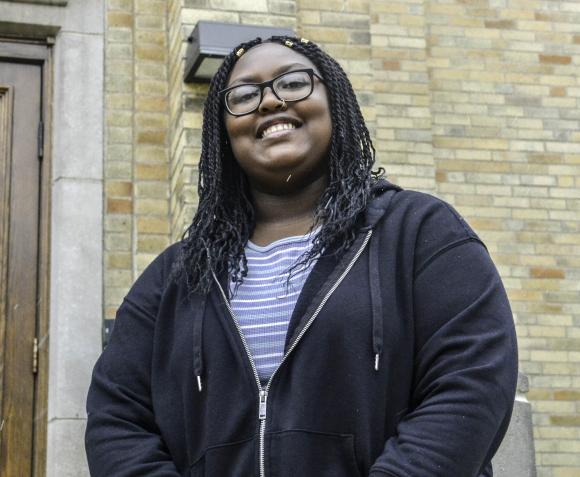
María Rosa Menocal
“Poetry as an Act of History:
Al-Andalus, Sefarad, Spain”
Click here for the video of the Christian Culture Lecture 2008 **
Thursday September 18, 2008
Little Theatre, Moreau Center for the Arts
Saint Mary's College
About Speaker María Rosa Menocal
 María Rosa Menocal is the Director of the Whitney Humanities Center and Sterling Professor of the Humanities at Yale University, where she has taught in the Department of Spanish and Portuguese since 1985. Her many books on Spanish literature and culture include "The Ornament of the World: How Muslims, Christians, and Jews Created a Culture of Tolerance in Medieval Spain" (2002), which has since been translated into eleven languages. In the spring of 2007 an international conference in Toronto commemorated the twentieth anniversary of her volume "The Arabic Role in Medieval Literary History: A Forgotten Heritage" (1987) and its impact on the field of medieval studies. Her most recent book is a broad-ranging and richly illustrated collaborative project, written with art historian Jerrilynn Dodds and Arabist Abigail Krasner Balbale, on Castilian as the shared culture of the three monotheistic traditions in all art forms.
María Rosa Menocal is the Director of the Whitney Humanities Center and Sterling Professor of the Humanities at Yale University, where she has taught in the Department of Spanish and Portuguese since 1985. Her many books on Spanish literature and culture include "The Ornament of the World: How Muslims, Christians, and Jews Created a Culture of Tolerance in Medieval Spain" (2002), which has since been translated into eleven languages. In the spring of 2007 an international conference in Toronto commemorated the twentieth anniversary of her volume "The Arabic Role in Medieval Literary History: A Forgotten Heritage" (1987) and its impact on the field of medieval studies. Her most recent book is a broad-ranging and richly illustrated collaborative project, written with art historian Jerrilynn Dodds and Arabist Abigail Krasner Balbale, on Castilian as the shared culture of the three monotheistic traditions in all art forms.
About Her Talk
Just what history does a poem tell us that political history cannot, or will not? The long and complex history of relations among the Islamic, Jewish, and Christian communities of the Iberian peninsula in the Middle Ages has been understood in dramatically different ways: for some it is a history of crusade-like reconquest and religious warfare, for others it is exemplary of a culture of tolerance and coexistence. The difference in perspective often depends on the kind of evidence we value, and while the records of institutions –religious and political –tell one story, the aesthetic forms –architecture, poetry, music –tell us a different tale. Tracing the powerful nostalgic impulse of Andalusian letters from the great Islamic poets of the eleventh century to the evocative songs of the Spanish poet Federico Garcia Lorca, from Cervantes’ bittersweet Don Quixote to the politically-charged poems of the contemporary Palestinian Mahmoud Darwish, this talk will dwell on the often elusive but central role played by poetry in our understanding of history.

